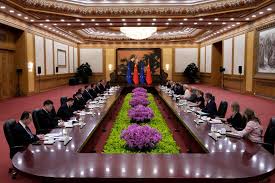Italy: Labor union launches initiative to promote integration in Basilicata

Rome: Italy’s labor union UIL in the southern region of Basilicata has launched an initiative called ‘Coordination on immigration’ to promote the project ‘Zero difference’, helping the immigrant population find employment.
The Basilicata chapter of UIL, one of Italy’s three main labor unions, has launched a new initiative called Coordination on Immigration in support of a broader project titled Zero Difference, aimed at promoting the integration of migrants through employment.
The plan was presented on Tuesday, July 22, by union leaders at a Caritas center near Potenza, operated by the Catholic charity.
The regional leader of UIL, Vincenzo Tortorelli, stressed during the presentation how the government’s ‘flow decree’ regulating the legal entry of foreign workers in 2024 “produced less than 1 percent of regular contracts compared to the job applications filed by migrants.”
The migrant flow decree authorizes the entry of foreign workers as part of the quota system that regulates the number of work visas issued each year.
The presentation was also attended by national ITAL UIL president Giuliano Zignani, and by the national confederal leader of UIL Santo Biondo who said that, “without corrections, the system is inefficient and favours crime instead of good employment. We are risking the umpteenth flop.”
Last year, some 12,000 requests to hire non-EU workers were presented in Basilicata, with results that were in line with the national average.
According to UIL data, the region has some 25,000 foreign workers, including 14,000 who are not regularly hired.
Through Coordination on Immigration, UIL aims to address the challenges linked to migration by developing solutions that ensure fair job opportunities and social inclusion. The Zero Difference project will analyze the effectiveness of current flow decrees, highlighting their failure to adequately regularize migrant labor and their role in sustaining informal employment and systemic inefficiency.
According to Tortorelli, the regional government has also failed to promote policies favouring the integration of migrants and responding to “essential needs in terms of living conditions and professional training”.
UIL said it is pursuing the objective of offering services, protection and information to immigrants, promoting their rights, inclusion and dignity.
In partnership with Caritas, UIL is also proposing the creation of a regional committee on poverty to develop an action plan for families in need — including non-EU worker households.
While waiting for details on the quotas of migrant workers to be assigned to the provinces of Potenza and Matera next year (the flow decree for 2026 has authorized the entry of 164,850 with a work visa), under the responsibility of the Labor Ministry, those regarding the ongoing year cover seasonal workers and specific sectors like agriculture and tourism.
Matera, where the number of seasonal workers is higher in agriculture, has been allocated the highest quota. Of the total seasonal positions, 422 are designated for women (327 in Matera, 95 in Potenza). Additionally, 42 caregiver positions have been assigned to female workers (28 in Matera, 13 in Potenza).
A reported 510 female workers are citizens of States with which Italy has new agreements (420 Matera and 90 Potenza); 74 are from India (38 Matera and 36 Potenza) and 16 from Tunisia (4 Matera and 4 Potenza).
For agriculture and tourism specifically, separate quotas for women have been established: 250 and 239, respectively.
‘Zero Difference’ is part of European policies under the EU Action Plan on Integration and Inclusion 2021-2027, which aims to build a more inclusive society through employment, services and the active participation of non-EU citizens.




